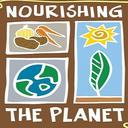Suleiman says his involvement in the project has turned his life around. Farming for him is now a serious business. He estimates that he makes profits of between 50 and 100 percent from his cassava, depending on the season, and his income increased more than four times. "Before the training, I did not know agriculture was a business. I did not know whether I made a profit or a loss. Now, I know how much cassava I have planted, the cost of labor and manure, how much I expect to harvest, and how much profit I will make. I am now able to save some money in the bank and my life is less stressful. I even bought a color TV to be able to follow the World Cup!"
Yet there is still a big gap to fill before all the farmers on Zanzibar can enjoy the new cassava varieties. According to Salma Omar Mohamed, a research officer with Kizimbani Research station, only some 10,000 farmers are currently growing these new varieties, out of a potential of more than 1 million. She says the business model of distributing the planting materials has excluded poor farmers who are not able to afford the materials. However, she was thankful for the strides made with funding from donors such as Alliance for a Green Revolution in Africa (AGRA), which supported the free distribution of planting materials to poor farmers under a voucher program.
Mohamed hopes they can get more such support to spread the improved varieties to all the farmers on Zanzibar and on neighboring Pemba Island, where the disease is also prevalent and penetration of the new varieties is even lower.
Dr. Kanju, a cassava breeder with IITA, says hope is also on the way for farmers in Kenya, mainland Tanzania, and Uganda, as 15 promising cassava varieties that are suitable for the climatic conditions of these areas are in the last testing stages. "With scientists and farmers working together, they can eliminate the diseases in the region, securing the food and livelihoods of over 200 million farmers in sub-Saharan Africa who depend on the crop."
Catherine Njuguna is a communication officer with the International Institute of Tropical Agriculture (IITA) based in Dar es Salaam, Tanzania.
Thank you for reading! As you may already know, Danielle Nierenberg is traveling across sub-Saharan Africa visiting organizations and projects that provide environmentally sustainable solutions to hunger and poverty. She has already traveled to over 18 countries and visited 130 projects highlighting stories of hope and success in the region. She will be in Benin next, so stay tuned for more writing, photos and video from her travels.
If you enjoy reading this diary, we blog daily on http://blogs.worldwatch.org/nourishingtheplanet/">Nourishing the Planet, where you can also sign up for our newsletter to receive weekly blog and travel updates. Please don't hesitate to comment on our posts, we check them daily and look forward to an ongoing discussion with you. You can also http://twitter.com/worldwatchag">follow us on Twitter and click here">Facebook.
(Note: You can view every article as one long page if you sign up as an Advocate Member, or higher).





